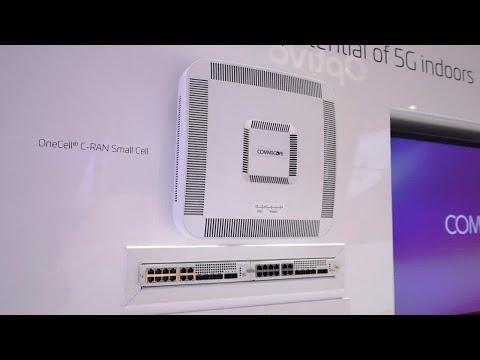Carrier Wrap: 5G Focus At MWC; Sprint Brings Back Service Contracts - Episode 16
Description
The recent Mobile World Congress event was chock-a-block full of news surrounding the ongoing development of “5G” technology. Vendors and carriers alike were bullish on their plans to begin working towards the wireless network evolution, with many staking claims towards network and technology trials beginning this year.
These announcements included the likes of T-Mobile US, which announced a partnership with Ericsson and Nokia Networks on developing a pre-standards 5G test system for lab and field trials, with actual trials set to begin later this year. T-Mobile US CTO Neville Ray said the work would include its current LTE technology and spectrum, with plans to support the next technology iteration in time for the launch of 5G-enabled consumer smartphones sometime after 2020. Those comments reinforce the carrier’s relatively conservative approach towards 5G, which has become a hot topic among wireless carriers.
On this week’s Carrier Wrap, RCR Wireless News editor-in-chief Dan Meyer and managing editor Sean Kinney, looked at the MWC-focused 5G push, noting that while a 5G standard itself is not expected to be finalized for several more years, carriers and vendors used the MWC platform to begin staking their claims towards what they think the standard should include and how they could potentially influence those final details.
Also this week, Meyer and Kinney looked at Sprint’s recent decision to bring back a two-year contract option for customers, which allows for a flat, subsidized price on a smartphone in exchange for a service contract and higher monthly service fees. Sprint had initially dumped such offers earlier this year, following a move by rivals.
Sprint customers, for instance, can now select to pay $200 up front for an Apple iPhone 6s, but are then required to pay an additional $25 per month in extra data access charges compared with selecting one of the carrier’s payment or lease options. Customers can avoid the additional access charge by selecting the carrier’s “unlimited” data package, which is priced at $75 per month, or avoid all access charges by choosing to pay the full price on the device up front.
The industry’s recent move towards device payment and leasing programs recently drew a stinging rebuke from one financial analyst firm, which questioned the industry – and Sprint specifically – in how they account for such financial dealings.
According to Craig Moffett of MoffettNathanson, Sprint sourced 71% of its earnings before interest, taxes and depreciation from “accounting distortions” during the fourth quarter of 2015. Moffett said the accounting distortions started when carriers moved to device financing instead of subsidized pricing, and Sprint’s financials became even further divorced from reality when the carrier started leasing devices.
“Things really went off the rails when Sprint started doing leasing and I wouldn’t be surprised to see others start doing leasing because of the distortion, or benefit, that Sprint has gotten,” said Moffett. “On an as-reported basis, Sprint looks like it’s growing [earnings before interest, taxes, depreciation and amortization] at just under 30% and it looks like it’s trading at 5.7-times EBITDA, not an unreasonable number. But if you adjust for all the accounting nonsense, Sprint is actually growing EBITDA at negative 30% and it’s actually trading at 12-times EBITDA.”
Sprint this week also announced an expansion of a retail agreement with U.K.-based Dixons Carphone to open 500 new Sprint-branded stores following a pilot program launched last year.
The latest deal calls for European-based Dixons Carphone to partner with the domestic market’s No. 4 wireless carrier on operating the stores across “multiple U.S. markets.” Both firms will split funding of the venture and each control 50% of partnership. Sprint said the pilot program showed “strong sales performance and increased customer satisfaction ratings,” and continues the wireless carrier’s push to expand its retail presence.
For our featured interview this week, Meyer spoke with Anthony Montoya, CEO of mobile virtual network operator Defense Mobile, about the company’s unique wireless service offering and to get an overall view on the competitive MVNO space. Defense Mobile caters its wireless service offering to military families, including donating 10% of net profits to military families in need and staffing its customer care centers with veterans.
Thanks for watching this week’s Carrier Wrap, and make sure to check us out again next week when we will look at the week’s top carrier-related news as well as speak with FreedomPop CEO and co-founder Stephen Stokols.
























